Communicating in Times of Crisis
21.04.2020
Even when money is tight and the future is uncertain, remember to keep making deposits to your emotional bank account.
We are all living in highly stressful times; I hope this message finds you well.
Now that so many of us are working remotely, we are finding communication much more challenging. Even with video conferencing tools, it is still difficult to observe and process all of the nonverbal cues that we used to depend on for communication with coworkers, customers, and vendors.
Some of you that are working from home are fortunate to have your family with you. But by now you know that the additional job titles of teacher, cook, entertainer, etc., come with their stress-inducing challenges.
What to do?
First:
Breathe. Nice long relaxing breaths…
What we know about DISC in our own personality can help us, and those we care about, through the new abnormal.
When stress is present, people seek to reduce it, often by dumping it on the person “responsible” for the tension, which is unproductive. Each personality style has its own characteristic manner of “dumping” stress on another.
We all have stress-inducing situations that come and go in our lives. Lately, for most of us, the stress has been sticking around a lot longer. In crisis situations stress is amplified. Behavioral expressions can change, and behaviors may intensify. We need to be ever more vigilant in our interactions with those we care about and those who are dependent on us in our work and at home. This is not easy. Even people with highly developed emotional intelligence (EIQ) are struggling.
Emotional intelligence refers to the capacity to be aware of, control and express our emotions as well as understanding the emotions of others. Empathy is an important characteristic of high EIQ but can be very difficult to display when we are stressed and outside of our comfort zone. Identifying and addressing the characteristic fears of our personality type will help to avoid some of the rough spots. Those rough spots can drain your emotional bank account and reduce your EIQ.
The chart below shows how a reduced EIQ can negatively impact personality traits:
DISC + EMOTIONAL INTELLIGENCE
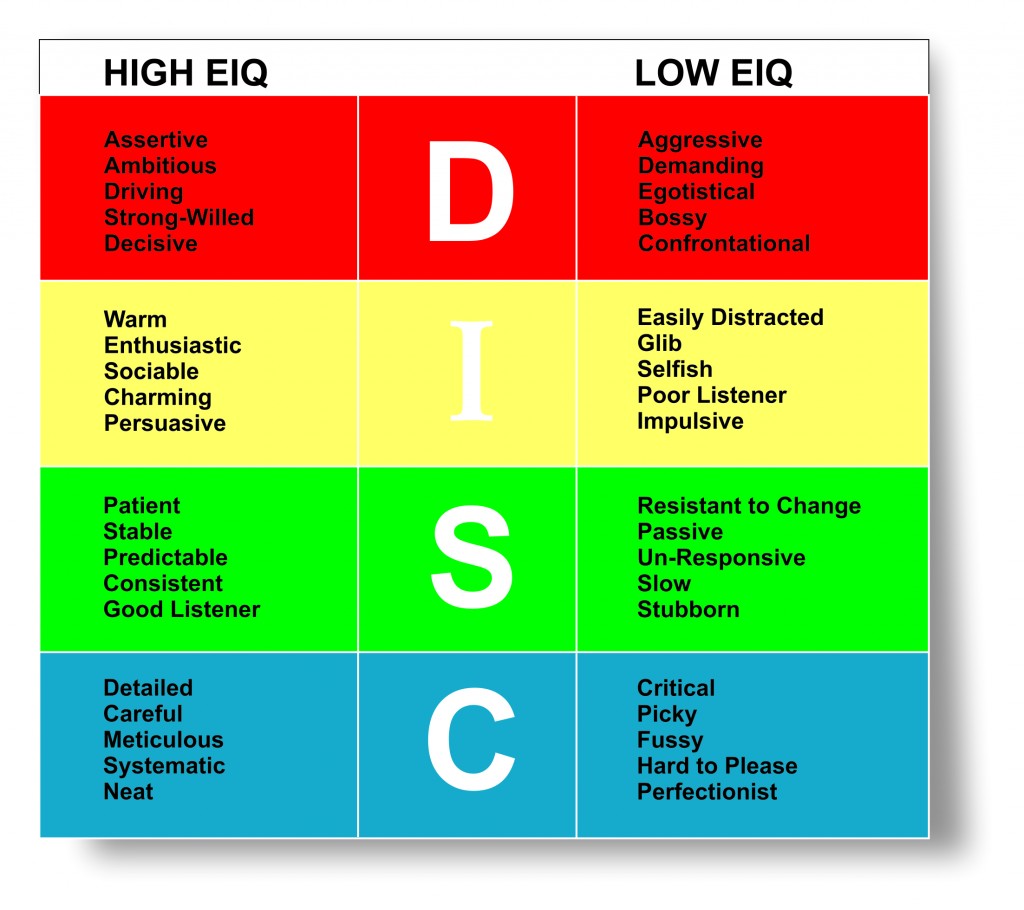
If you found yourself migrating toward the right side of the chart recently, you are not alone. Without being conscious of the change:
- A decisive and ambitious person can become more aggressive and confrontational when things are out of control.
- A normally sociable and charming individual can become glib and distracted without enough opportunity for social interactions.
- A patient, stable person can become stubborn or even un-responsive when there is no system or the normal pace of their life is disrupted.
- A careful, neat person can become very critical and fussy when new rules or restrictions are unclear or not universally adhered to.
The good news is that you can adapt back to more positive traits. Identify the cause of the stress, based on your personality type, and address it.
Take some time to review your Team Strength DISC profile. If you do not have a profile, then take a look at the graphic below with some broad descriptors of each of the DISC personality types. Find the broad descriptor that matches your personality best, keeping in mind that there may be two different areas that apply, and use that as your guide.
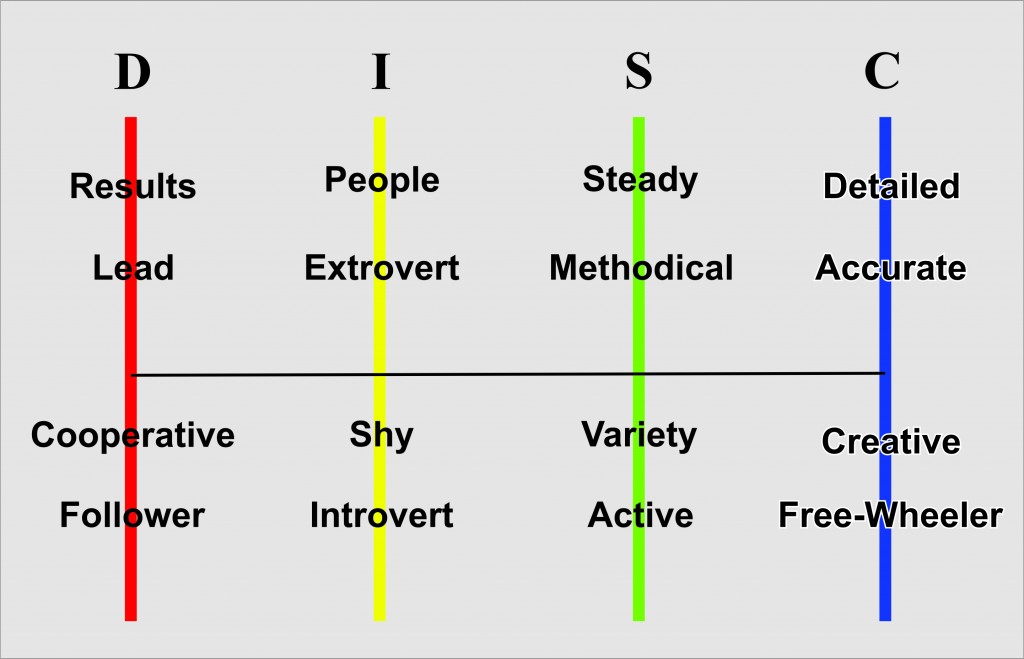
Your Team Strength DISC profile will describe in detail your personality type and highlight some of the drivers that you react to, what you need and also some of the fears that can affect you. The chart below summarizes three key areas in each of the four profile styles.
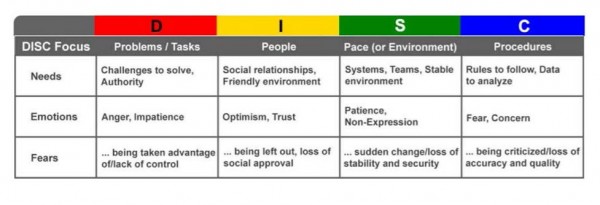
The following charts summarize the behaviors and needs of each style.
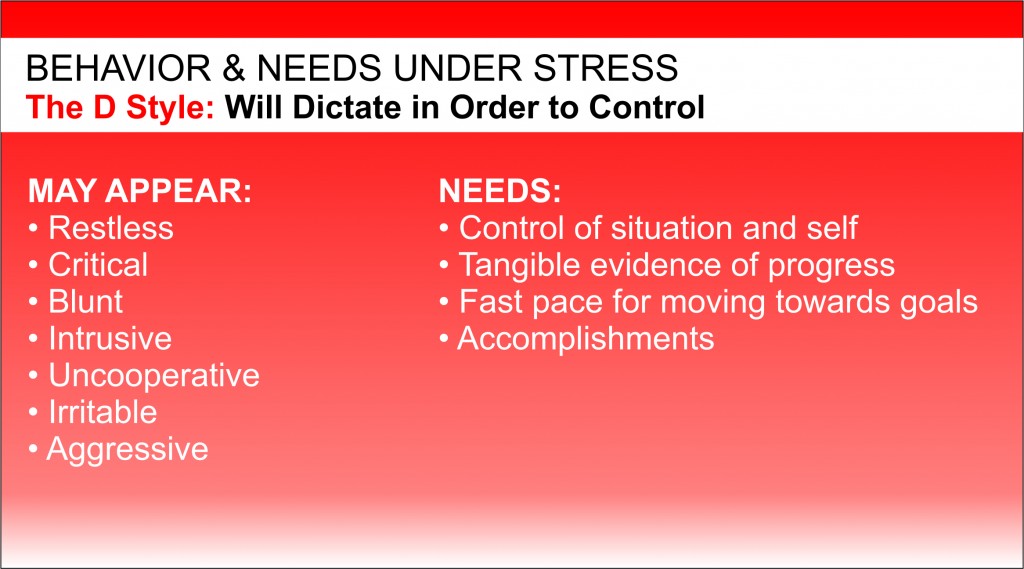
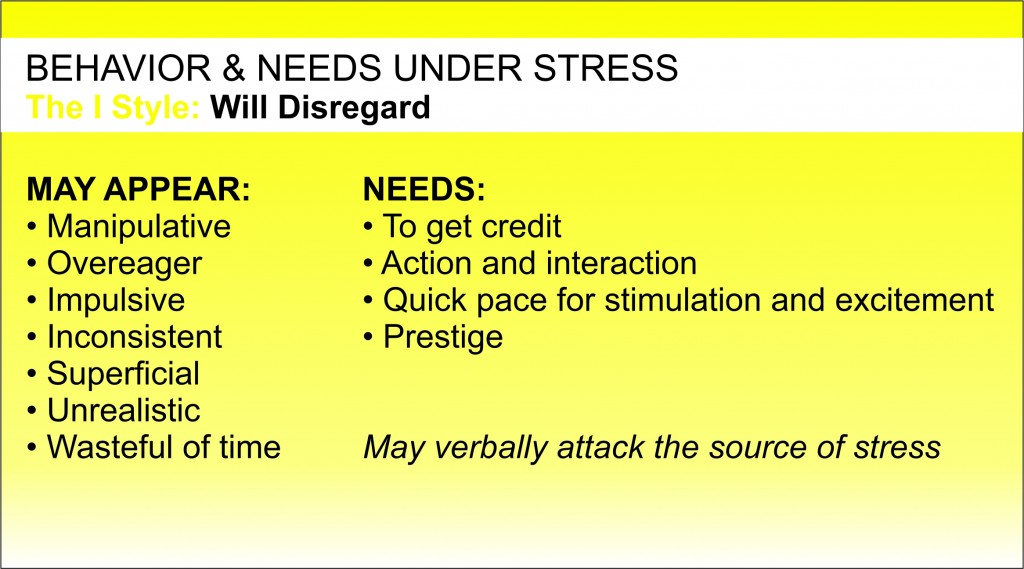
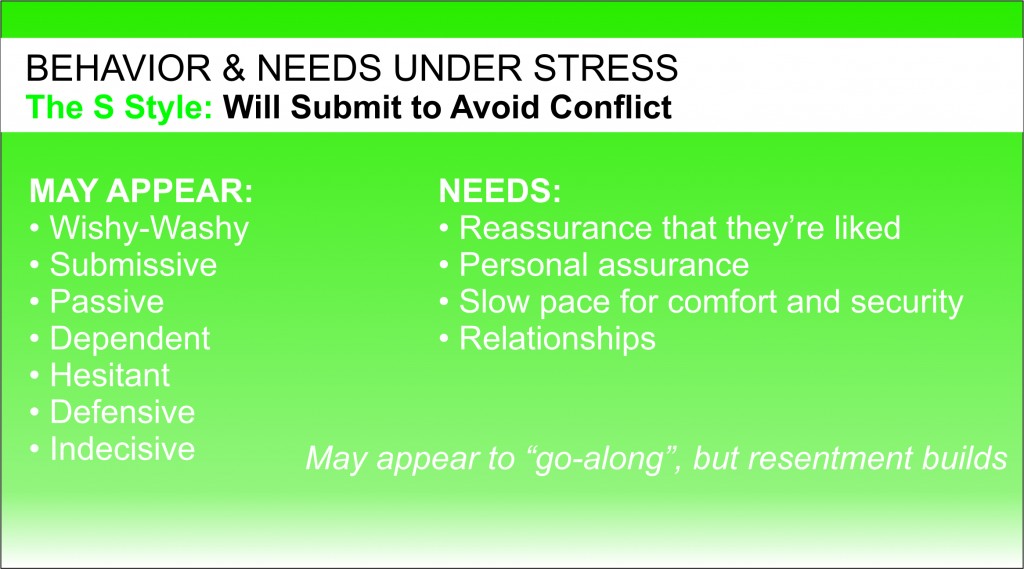
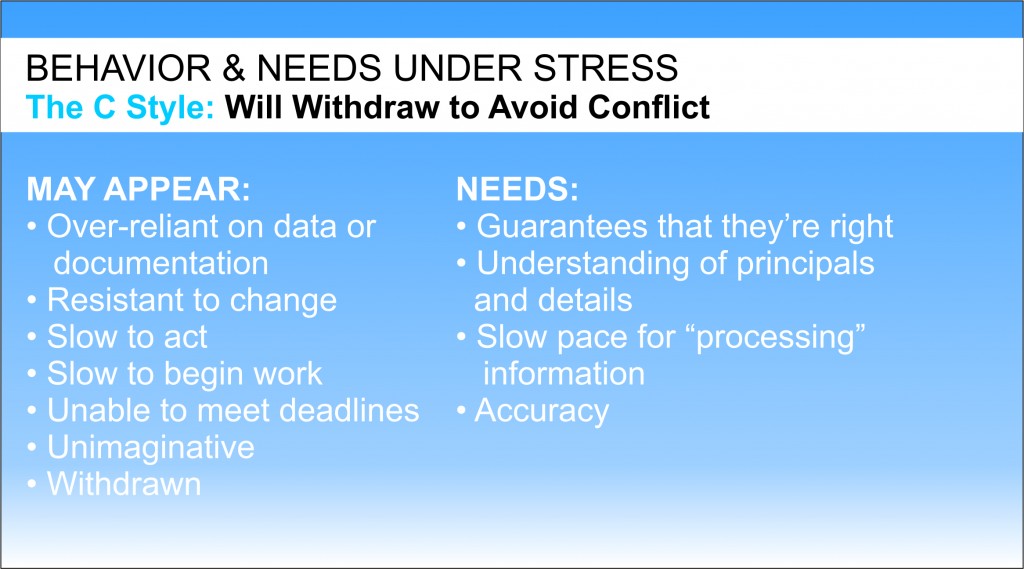
When we identify and control what is likely to stress us we can better react with thoughtfulness. (That is a good time to take a nice, deep breath.) It is OK to understand and accept that we are under stress and not in a comfortable place. That will start to refill our emotional bank account when we need it most. Here are comparisons for each style:
D Style
Emotional/Reactive: “If you can’t stand the heat, get out of the kitchen.”
Thoughtful: “I understand this is stressful. Let’s focus on what we CAN control.”
I Style
Emotional/Reactive: “Hey, let’s move on to something more positive!”
Thoughtful: “It’s difficult not seeing my friends. Can we find a time to get on a Zoom-social call?”
S Style
Emotional/Reactive: “Okay, if that’s the way you must have it, we’ll try it.”
Thoughtful: “I know things are uncertain right now. I just need to know that we are all in this together and we are going to get through it together.”
C Style
Emotional/Reactive: “I can’t help you any further. Do what you want.”
Thoughtful: “I know this is stressful. I just need to unplug for a day.”
When we can get our own emotions controlled by understanding and managing the things that we can affect, then we will be in a better position to help others. By communicating more effectively and reducing our reactive behavior, we will be in a better position to be more accommodating to those around us, on phone calls or in a video chat.
We can then remember to treat others the way they want to be treated. Don’t try to “fix” people. We can remember that they have different needs and fears and we can adapt ourselves to their pace or priority as best we can. It’s a time that we all need to listen more and pay attention to what other behavioral expressions we are broadcasting and being more accepting of the reactions of others.
So, in these troubling times, we do have the ability to make deposits to our own emotional bank account. Even better, when we pay attention and care for others, we can also make emotional deposits to the accounts of those people who are important to us.
Stay safe, stay well.
Tim
Send your questions about how to use your profile to identify and control what is likely to stress you sot that you can better react. Email
Call 772-210-4499 to set up a time to talk about tools and strategies that will lead to better results.
Please share this with a friend/colleague
More Tools:
The first step to building stronger communication is awareness. By identifying how we are similar and different, we can make cognitive choices when interacting to create stronger, more engaged relationships.
Deeper Look at Team Strength DISC Styles
 Tim is a Consultant to Business, Government and Not-for-Profits Organizations specializing in innovative and challenging ways for organizations to survive, to thrive and to build their teams.
Tim is a Consultant to Business, Government and Not-for-Profits Organizations specializing in innovative and challenging ways for organizations to survive, to thrive and to build their teams.